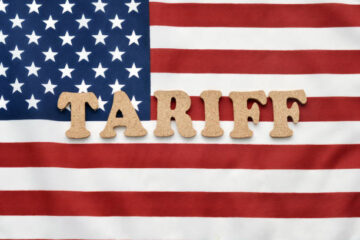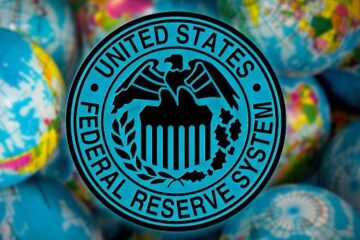If you had a job like this, you’d never miss a day of work.
Five thousand years ago, employers in the ancient city of Uruk used a particular currency to pay their workers: beer.
Analysts adjust their price targets for Constellation Brands.
Shutterstock
Tablets excavated from the area record the amount of the sudsy stuff allotted to each worker, according to New Scientist, in what is believed to be the world’s oldest known pay slip,
But tastes have changed over the millennia, and though people may be crying, they ain’t doing it in their beer.
In 2023, Americans consumed the lowest level of beer in a generation, shifting away from traditional favorites to other forms of alcohol — and in a growing number of cases, avoiding alcoholic beverages altogether.
Sign up for TheStreet’s free daily newsletter.
“It was a tough year for beer,” said David Steinman, vice president and executive editor of Beer Marketer’s Insights, told NBC News in December.
Industry analysts pointed to several factors for the ailing numbers, including competition from new alcohol products, many of which are from nontraditional producers.
And consumers aren’t just skipping the brewskis. Young people are cutting down on alcoholic beverages in general.
Related: Analyst revisits Costco stock price target, rating ahead of earnings
Younger adults less likely to drink alcohol
A Gallup survey conducted last year found that 62% of adults under age 35 said they drink, down from 72% two decades ago. Young adults are also drinking less frequently and are less likely to drink to excess.
Gallup said the main reason for the decline in drinking among young adults might be greater diversification of their racial and ethnic makeup than occurred among middle-aged and older adults.
Related: McDonald’s president flags a worrisome trend, shifting outlooks
The percentage of 18- to 34-year-olds who are Black, Hispanic, Asian or another racial minority has nearly doubled over the past two decades, Gallup said, noting that non-White Americans have persistently been less likely than White Americans to drink alcohol.
In addition, growing public concern about the health risks of drinking, particularly among young adults, could be behind these shifts, Gallup said.
Young adults’ increased use of marijuana in recent years could be yet another factor in their declining interest in alcohol.
Constellation Brands CEO cites ‘macro headwinds’
Constellation Brands (STZ) , which owns the U.S. rights to such imported beers as Corona, Modelo Especial, Negra Modelo, and Pacífico, recently adjusted its write-down of the value of its assets due to weak wine sales
The company said the noncash goodwill impairment of $1.5 billion to $2.5 billion would hurt its second-quarter results.
Constellation cited continued negative trends, primarily in its U.S. wholesale market, driven by declines in both the overall wine market and its mainstream and premium wine brands.
Related: Iconic Campbell Soup makes a bold decision some may not like
At the same time, “while ongoing macroeconomic headwinds, particularly rising unemployment, have led to a recent deceleration in the rate of growth of consumer demand for our products, we are on track to deliver a solid mid-single-digit volume increase this fiscal year for our beer business,” Constellation Brands President and CEO Bill Newlands said in a statement.
These trends, Newland added, “have been most notable in the top five states for our beer business, which account for just over half of our volumes.”
“However, we continue to see volume growth within the low- to mid-single-digit range in these states and within the high-single-digit range on average across the rest of the country,” he said.
Constellation, which is scheduled to report earnings next month, slashed its fiscal 2025 earnings outlook to between $3.05 and $7.92 a share, down from initial expectations between $14.63 and $14.93 a share.
Analyst notes ‘challenged U.S. beer category’
The company dropped its total sales outlook to between 4% and 6% from between 6% and 7%.
Chief Financial Officer Garth Hankinson said the company remained “confident in our ability to deliver against our initial double-digit comparable EPS growth expectations and have raised the lower-end of our initial comparable EPS guidance range for fiscal 2025.”
More Wall Street Analysts:
Analyst says Intel should drop a key business to surviveAnalysts adjust Bookings.com stock price target on travel marketAnalysts place bets on Las Vegas strip casino stocks
The largest beer importer in the U.S. by sales, Constellation has more than 100 brands in its portfolio, including wines such as Robert Mondavi, Meiomi, Simi Winery, and Ruffino.
The Rochester, N.Y., company also owns such spirits brands as Svedka Vodka, Casa Noble Tequila and High West Whiskey
In July, Constellation Brands beat Wall Street’s first-quarter earnings expectations but fell short of revenue forecasts.
Newlands cited “the continued growth of our beer business, which attained the second largest share gain in the total beverage industry, as well as, once again, the top share gain in all beverage alcohol.”
He also told analysts about “challenging dynamics … particularly across most of the wine price segments.”
These headwinds were the main drivers of the 7% net sales decline for that business in Q1,” Newlands said.
Related: Veteran trader reviews Olive Garden parent stock price after earnings
Investment firms have been reviewing their price targets for Constellation Brands, including Roth MKM, which lowered its target earlier this month to $298 from $303 but affirmed a buy rating on the shares.
The firm cited Constellation’s reduction of its enterprise net sales growth view and the Wine & Spirits impairment.
Many investors had already expected this outlook, however, and were reassured by Constellation’s slightly increasing its adjusted earnings outlook, the investment firm said.
Barclays raised its price target on the company to $309 from $295 and maintained an overweight rating on the shares.
In light of what remains a challenged U.S. beer category, the firm lowered industry volume assumptions by a percentage point for 2024 and 2025.
The summer selling season did little to course-correct the U.S. beer industry, with Constellation’s guidance update in early September validating the muted picture painted by scanner data, Barclays said.
Related: Veteran fund manager sees world of pain coming for stocks


